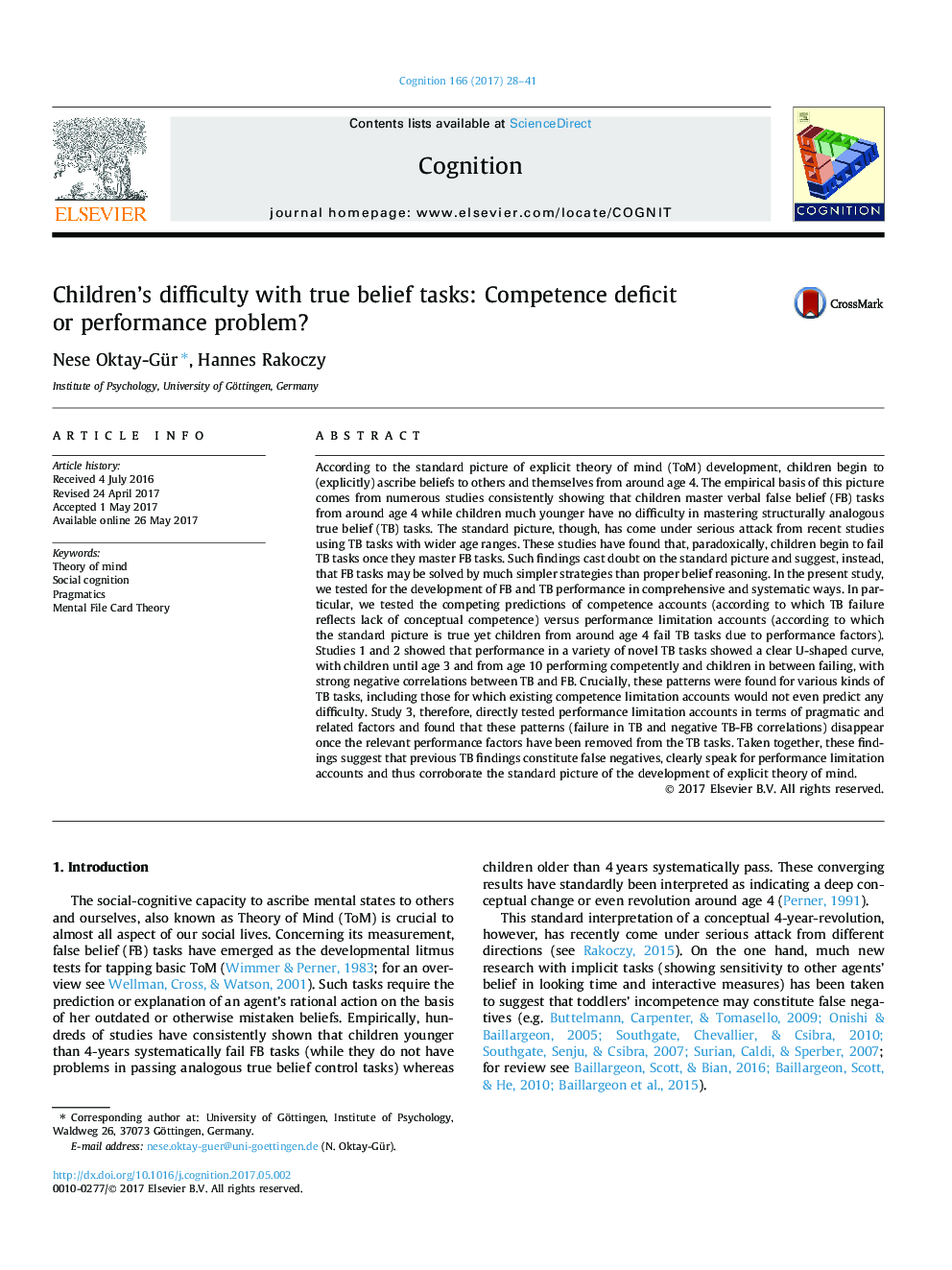| کد مقاله | کد نشریه | سال انتشار | مقاله انگلیسی | نسخه تمام متن |
|---|---|---|---|---|
| 5041539 | 1474101 | 2017 | 14 صفحه PDF | دانلود رایگان |
- Performance in true (TB) and false belief (FB) tasks from age 3 to adulthood was investigated.
- Performance showed a U-curve: Children mastered TB tasks before 3 and after 10, but failed in between.
- TB and FB tasks were negatively correlated for children between 4 and 6.
- Once pragmatic task demands were reduced, all age groups solved true belief tasks.
- These results speak for performance accounts of difficulty with true belief tasks.
According to the standard picture of explicit theory of mind (ToM) development, children begin to (explicitly) ascribe beliefs to others and themselves from around age 4. The empirical basis of this picture comes from numerous studies consistently showing that children master verbal false belief (FB) tasks from around age 4 while children much younger have no difficulty in mastering structurally analogous true belief (TB) tasks. The standard picture, though, has come under serious attack from recent studies using TB tasks with wider age ranges. These studies have found that, paradoxically, children begin to fail TB tasks once they master FB tasks. Such findings cast doubt on the standard picture and suggest, instead, that FB tasks may be solved by much simpler strategies than proper belief reasoning. In the present study, we tested for the development of FB and TB performance in comprehensive and systematic ways. In particular, we tested the competing predictions of competence accounts (according to which TB failure reflects lack of conceptual competence) versus performance limitation accounts (according to which the standard picture is true yet children from around age 4 fail TB tasks due to performance factors). Studies 1 and 2 showed that performance in a variety of novel TB tasks showed a clear U-shaped curve, with children until age 3 and from age 10 performing competently and children in between failing, with strong negative correlations between TB and FB. Crucially, these patterns were found for various kinds of TB tasks, including those for which existing competence limitation accounts would not even predict any difficulty. Study 3, therefore, directly tested performance limitation accounts in terms of pragmatic and related factors and found that these patterns (failure in TB and negative TB-FB correlations) disappear once the relevant performance factors have been removed from the TB tasks. Taken together, these findings suggest that previous TB findings constitute false negatives, clearly speak for performance limitation accounts and thus corroborate the standard picture of the development of explicit theory of mind.
Journal: Cognition - Volume 166, September 2017, Pages 28-41
